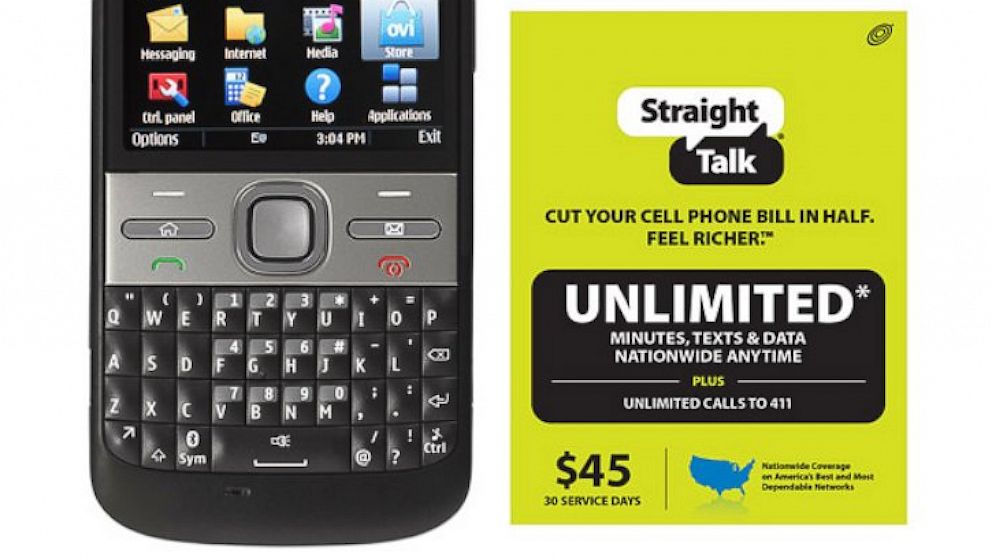Class Action Suit Claims Walmart and TracFone Mislead Phone Customers
A class action suit claims Straight Talk cell phone plans mislead customers.

July 30, 2013 -- A class action suit filed last week in U.S. District Court for Northern California claims that consumers who buy Straight Talk cell phone plans aren't getting straight talk: The plans, advertised as providing "unlimited" data use, in fact have limitations, the suit claims.
The complaint against Walmart Stores and TracFone Wireless, which jointly created Straight Talk in 2009, says that the advertising claim is false, and that customers are routinely subject to having their flows of data "throttled" (slowed) or to having their access to data terminated without notice.
Throttling takes place, according to the complaint, when subscribers near or exceed "internally established, but undisclosed" data usage limits, or when the strain imposed on wireless networks by peak data usage requires easing.
The complaint says customers who objected to being "throttled" were blamed by TracFone service reps for having misused the data service, without being told how they had allegedly misused it.
As an example, the suit cites Northern California wireless customer Edward Tooley, who switched to Straight Talk's unlimited plan from a competitor's plan that expressly limited him to 2.5GB of high speed data, above which ceiling his data would be throttled.
He used his Straight Talk plan to access email, browse websites, navigate via Google Maps, "occasionally stream music" and "occasionally watch videos," says the complaint. Within only a few days of his having activated his service, says the complaint, he found his data being throttled to extremely low speeds without warning. His service later was terminated without notice.
The suit claims there are enough Tooleys among TracFone's more than 23 million subscribers to constitute a class. TracFone, it says, is the fifth largest wireless carrier in the U.S. Walmart it describes as the exclusive retailer of TracFone plans.
A TracFone spokesman, contacted by ABC News, said the company does not comment on current litigation. A request for comment from Walmart got no response.
Matt Wood, policy director for Free Press, a group advocating affordable Internet access, tells ABC that unlimited data plans used to be common. But providers, Wood says, "have now monetized data more aggressively" by offering tiered plans in which the customer pays up to a certain cap, or level of data use. If he exceeds that, he pays a penalty.
Asked if throttling is wrong, Wood says, "No. We actually think it's preferable to capping. A cap is a much more blunt tool for trying to manage traffic load. Throttling, if properly disclosed, is the better way."
The class action suit contends throttling was not properly disclosed either in Straight Talk advertising or in Straight Talk's terms and conditions of service.
Dr. Mark Cooper, director of research for the Consumer Federation of America, says that while heavy data users may object to throttling, there's nothing illegal about it, provided it's properly disclosed in the customer agreement and isn't at odds with what's promised in the plan's advertising.
Cell phone service providers, he says, routinely use throttling to manage data flow during times of peak use.
"If you're running a skinny little application, you're not going to notice it; but if you're streaming an HD movie at rush hour, you will see deterioration," he says.
Borrowing a restaurant analogy, he questions whether an "unlimited" customer should have the right to use a literally unlimited amount data any time he wants: "Suppose you walk into an all-you-can-eat restaurant, carrying a big cooler, and you fill it up, because the restaurant didn't say when you had to eat the food." Cooper calls the ethics of such a situation "murky."




